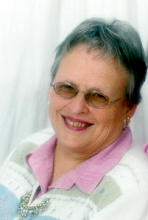PART ONE PILGRIM ANCESTORS
2. The Mayflower and Plymouth Colony
I think my husband’s name, Francis Eaton, will someday show up in a history book, because, he is one of the “Old Planters.” He was on the Mayflower, the first ship to bring people here with the idea of settling this new land. The Mayflower arrived in November 1620. Men had been crossing the ocean for years to fish, trade with the Indians and to explore the land. There were even some who tried to settle here but none of those settlements were very successful. The Mayflower had a contract with the Virginia Company and was supposed to land at Jamestown. The men in Jamestown were hoping to have some women added to their colony so they could build homes and raise families.
After several months of negotiations and false starts the Mayflower finally set sail out of Plymouth, England on September 6, 1620. After two months on the stormy ocean they missed their mark and sighted land on November 9. They were off the harbor that is called Pamet by the Indians, but we call it Cape Cod. The Captain of the Mayflower had accidentally found Plymouth Harbor where they anchored the ship.
They were many miles north of Jamestown. Since they were not at Jamestown, there was no law on shore. So on November 11, 1620 before a small group of men went on shore; they wrote a paper which said they would all follow the rules of their elected leader. They called this paper the Mayflower Compact and Francis was one of the men who signed it.
Francis, his wife Sarah and their baby, Samuel, were three of the one-hundred and two passengers and about twenty-five crewmen aboard the Mayflower. Some of the passengers on the
Mayflower were “Saints” who had left the Church of England about 20 years before and wanted to start life in a new land where they could practice their religion in the way they wanted. Some of the passengers were like Francis. They were “Strangers” who were just tired of having no jobs and little land of their own in England. They wanted to improve their lives and provide more for their families. There were a lot of people who wanted to be on the Mayflower, but there was only room on that small recycled wine carrier for a few of them.
When they arrived in Plymouth Harbor that first winter, the weather was bitter cold with a lot of snow and everyone was closed up in the small crowded ship for many more months. The women and children had to stay on the ship all winter. There were no houses on land. The men could go ashore so they got some fresh land air. The men finally chose a clearing where they agreed they could build a good settlement. The sight they chose was an abandoned Indian village that had not been lived in for many years. It took most of the winter to clear the land and build shelter on land for so many people. Francis is a house carpenter by trade and his skills come in very handy here in Plymouth. They called the settlement which they built Plymouth Plantation because it was the Plymouth Company who had put up most of the money for their journey.
During the ocean crossing many of the passengers were seasick but everyone arrive in the New World alive. But many were ill with some disease and before the winter was over many of them had died. Sarah, Francis’ wife, died that first winter.
In fact, only nine of the women over twelve years old lived through that first winter. At one time during the winter there were only seven people on the ship who were well enough to tend to the sick.
Francis’ second wife, Dorothy, came on the Mayflower also. She had come as John Carver’s maidservant, but both Mr. and Mrs. Carver died that first April. Francis married Dorothy not to long after that in 1621. Dorothy died before I arrive in June 1623. She had no children but baby Samuel had two mothers die before he was three years old. I came to Plymouth to take care for little Samuel.
When the spring came they were finally able to move off the Mayflower and into shelters the men had built on land. Trees were plentiful for logs. Everyone lived in the community buildings for the first year or so. In 1623 there was a division of land made so that each person who came on the Mayflower received one free acre of land. Francis received four acres because he, Sarah, Samuel and Dorothy had all been passengers on the Mayflower. People work harder when they own their land, than when the land is owned by everyone as a group.
I have lived here in Plymouth Colony for about ten years. I came from Bristol, England and I arrived in the New World on the “Anne.” The Anne was the third ship to arrive with new settlers to Plymouth Plantation. The Mayflower arrived in November 1620. The Fortune bringing new supplies and more people didn’t arrive until November 1621, the Anne arrived in June 1623 and the Little James in July 1623. The Anne and Little James carried new settlers as well as many of the wives and children who had been left behind when the Mayflower and Fortune left England.
I had no relatives here but I came to work as a nanny for Francis Eaton, a family friend. Francis and I were married soon after I arrived. In these past ten years more and more ships have come from England with people and animals. By 1627 there were about 150 English men, women and children living in Plymouth. Many more people had made the long trip across the ocean, but so many of them died here.
